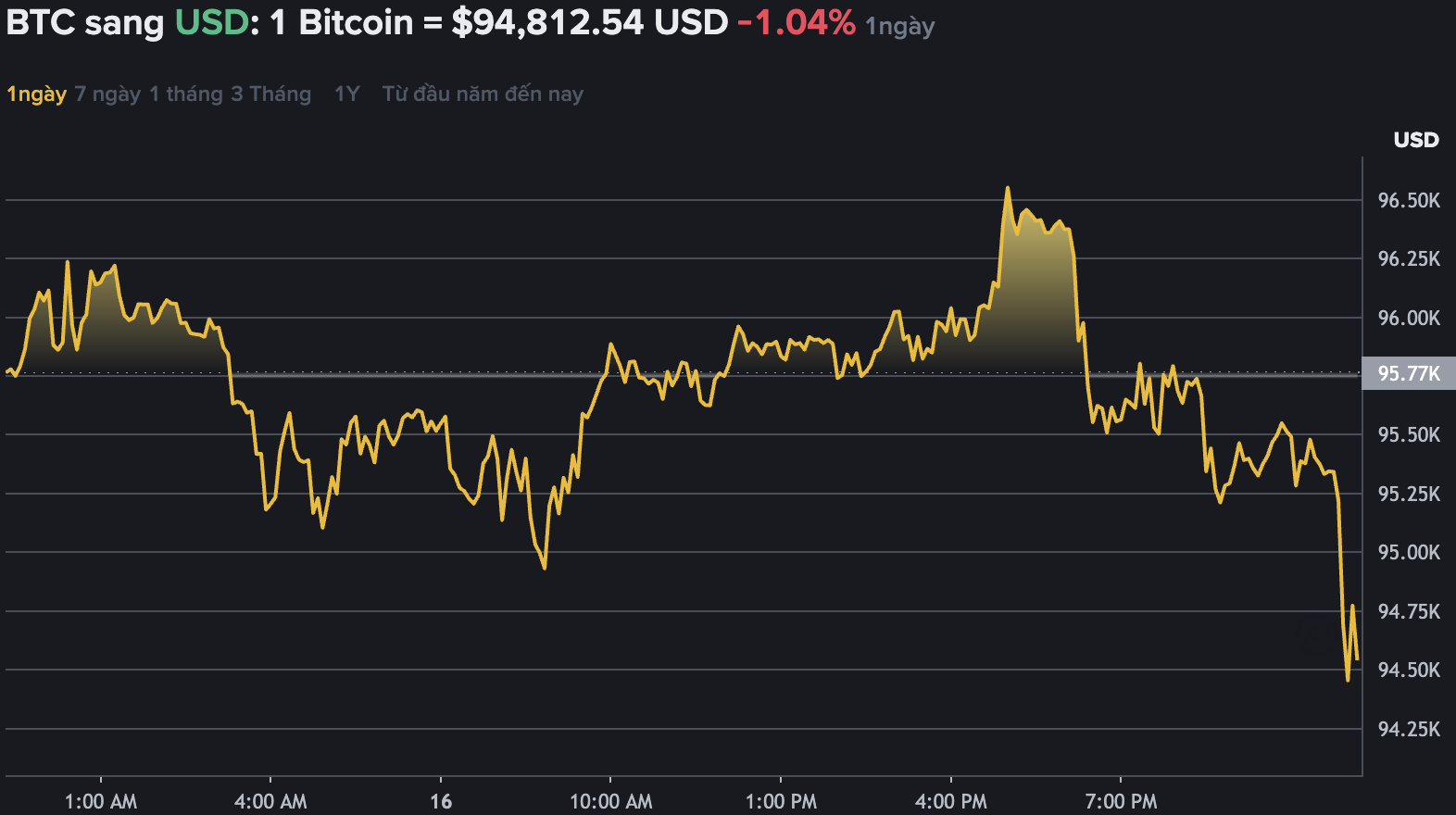Bitcoin price: Prolonged price decline
This morning (November 17), Bitcoin (BTC) - the world's largest cryptocurrency in terms of market value continued to decrease by 1.04%, reaching 94,812.54 USD.

This new price contributes to bringing market capitalization to 1,891 billion USD, down 22 billion USD. Similarly, trading volume in 24 hours decreased by 17.56 billion USD, down to 51.06 billion USD.
Assessment and forecast
Despite its unprecedented historical performance, Bitcoin is showing poor performance in 2025. As of last weekend, the price of this digital asset has increased by only 8%. Bitcoin is currently trading 25% below its peak in early October when strong selling pressure dominated the market.
No one can be sure what price Bitcoin will be at in the next year. Factors such as interest rates, unemployment rates, comments from the Federal Reserve (Fed), geopolitical developments, changes in regulations, as well as trends in the cryptocurrency and Bitcoin industries... can all have a significant impact on price fluctuations. These variables are completely unpredictable.
By the end of 2026, Bitcoin could be much more valuable than it is now. But there is also the possibility of these digital assets depreciating if a new "criptographic winter" occurs.
While easily caught up in what could happen in the next 12 months, long-term investors are typically focusing on the next 5 or 10 years. In the past, Bitcoin has performed extremely well over long periods, even though it is an asset with very strong fluctuations.
In case the annual profit rate in the future will gradually decrease, the increase will still be significant when more capital is poured into a scarce asset. By 2030 or 2035, Bitcoin is likely to be much more valuable than it is now.
In Vietnam, the cryptocurrency asset market has been piloted since September 9, with a pilot implementation period of 5 years.
However, organizations and individuals participating in the cryptocurrency asset market must comply with relevant legal regulations on prevention and control of money laundering, terrorist financing, sponsorship of the dissemination of weapons of mass destruction, electronic transactions, network information security, network security, data protection to ensure security and safety in the cryptocurrency asset market and other relevant specialized laws.











